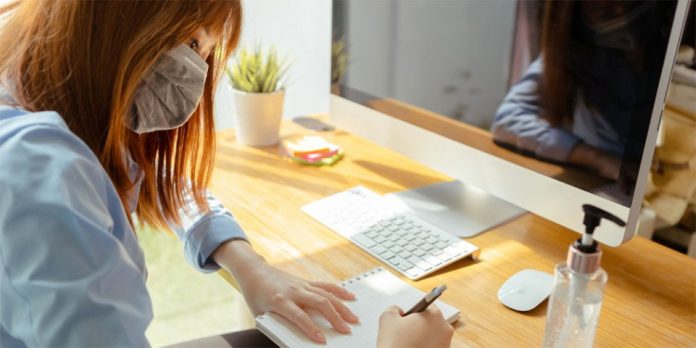Nearly 70 per cent of of respondents in a survey by Randstad in Malaysia have indicated their preference to continue working from home until the COVID-19 vaccine has been widely distributed. This is the highest in the region, with Singapore, China and Hong Kong trailing at 67, 45 and 48 per cent respectively.
Randstad – a leading human resources solutions agency – released the results of their H1 2021 Workmonitor survey in Malaysia Monday. The bi-annual survey highlights the workforce’s latest sentiments and perceptions of the local job market.
73% of respondents will not feel safe in their workplace until their co- workers are vaccinated More than seven in 10 respondents in Malaysia said they would feel unsafe in their workplace until others around them are fully inoculated against COVID-19, 12 per cent higher than their Singaporean counterparts (61 per cent). Of the respondents who were working on-site amid the pandemic, 55 per cent said they felt continuously at risk of COVID-19 infection. Almost three in five (59 per cent) of respondents saw their productivity levels suffer as they were perpetually stressed about getting infected with COVID-19 at their workplace and compromising the health of their loved ones.
Despite their health and safety concerns, less than one in two respondents (47 per cent) said that their employers have incentivised them to get vaccinated against COVID-19. Fahad Naeem, Head of Operations at Randstad Malaysia said, “It is not a surprise that people put a premium on their health and safety during a pandemic. In doing so, workers also expect their employers to take added precautionary measures to safeguard their health and safety. At the minimum, companies should implement stringent health and safety procedures and allow those who are able to work from home to do so.” “Employers should also strengthen their workforce’s herd immunity by actively encouraging workers who are able to do so to take the vaccine. Randstad Malaysia offers two days of paid COVID-19 vaccination leave to all employees so that they are able to better monitor their health after taking the vaccine without worrying about work. A COVID-19 vaccine education webinar was also conducted for all our staff so that they can make a more informed decision about the vaccine and their own health.”
More than three in five local employers still want their workers to be present in the workplace
In spite of the potential health and safety implications and sharp spikes in the number of COVID-19 cases in Malaysia, 64 per cent of respondents said that their employers would like them to work on-site. However, only 49 per cent of respondents agreed that their job cannot be performed remotely. Naeem adds, “Although many companies are eager to return to pre-pandemic activity levels, there is no rush to do so especially when the country is still experiencing a surge in COVID-19 cases. At the same time, companies should prepare for how the return to work would look like after the pandemic. We already know that many employees find themselves more productive and less stressed when working from home, so there is a clear rising employee expectation for hybrid or remote work options. It is hence critical for leaders to start reimagining the future of work, which will drive home the need for new work policies, digital investments and revised office designs to enable hybrid work arrangements and higher work productivity.”
The Randstad 1H Workmonitor survey was conducted in March 2021 across 34 markets around the world with a minimum of 400 respondents in each market.




















